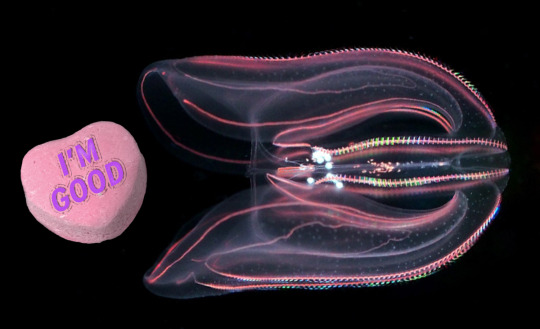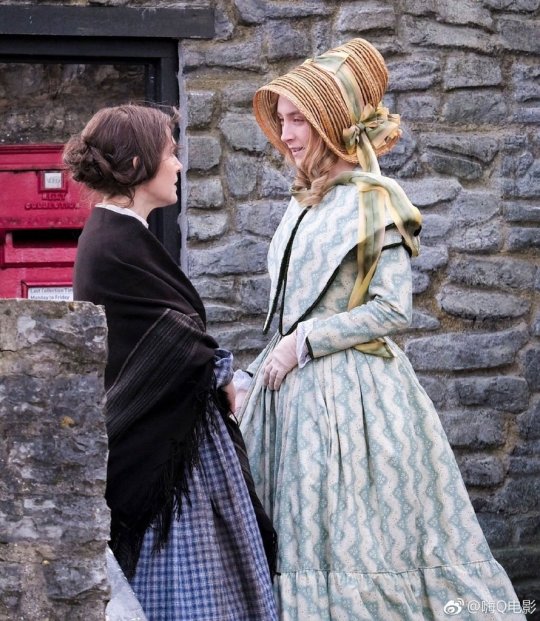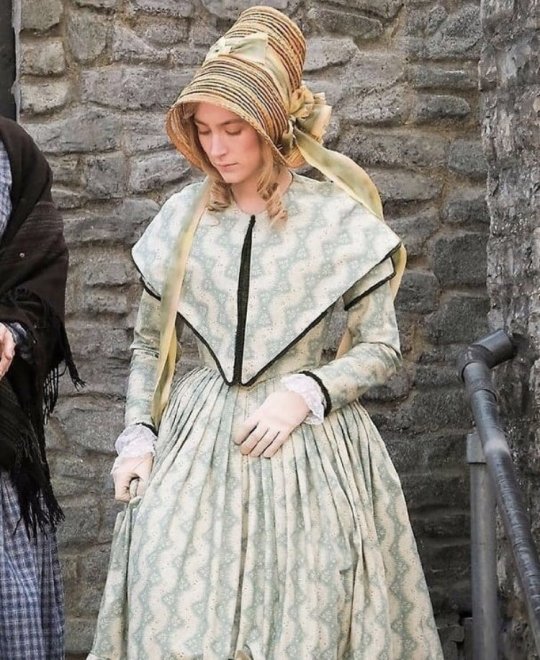Sara, 29, bi/aro. For fan stuff and personal use. May contain gratuitous amounts of werewolves. Not safe for bigots of any kind (that includes any kind of queerphobe, for example terfs and aphobes, racists, antisemites and so on). Not safe on full moons. Welcome!
Don't wanna be here? Send us removal request.
Note
I feel conflicted. A friend came to me telling me how their boyfriend had done something deeply inconsiderate and emotionally immature, and that it was a pattern. As she told me this, it just became clear to me what advice I should give, and I suggested that she may have outgrown him. She agreed, and said she was going to end things with him. I feel like I only told her what she already knew, but it still feels uneasy, helping to end a 3 year relationship. Should I feel guilt?
No, not at all.
The sunk cost fallacy keeps people in so many unhealthy relationships. Like, "I can't just throw away this relationship, it's been 3 years!" is a common justification for staying in an unhappy relationship.
We need to normalise and encourage leaving. If the people within a relationship are not making each other happy and fulfilling their needs then why should they be together? For the sake of not being single?
Relationships take work, this is true, but if you're the only one putting it in or if there is more work than play just to keri it stable then it is just unpaid labour.
You did your friend a solid by being honest with your views and giving them the space to decide for themselves. You sound like a good friend.
253 notes
·
View notes
Video
@salooverall
tumblr
unrestrained summer fun
309K notes
·
View notes
Video
@salooverall
tumblr
unrestrained summer fun
309K notes
·
View notes
Video
@salooverall
tumblr
unrestrained summer fun
309K notes
·
View notes
Text
I get a lot of questions from people who want to teach their kids environmental stewardship and my advice is to get them passionate about the nature around them. Distant wildlife is exciting and cool! It can teach them to appreciate, but I find it rarely teaches them to value.
Value and respect come from recognizing your place in nature and your ability to both help and hurt.
Go outside and just move some rocks and let them hold some worms. Let them get muddy. If they squash a bug, ask them why. Tell them the bugs live here too.
This sounds silly, but it’s tried and true. Each time I’ve seen a kid smash a bug, I say “why did you feel that bug wasn’t allowed to be alive?” Never in an accusing tone, never judgmental. Ask them gently, honestly. They might be dismissive and bashful at first, but if you ask them again, if you say “I like bugs, and I think it’s good that they are alive,” they start to think. You can see it happen. You can see them begin to consider life they’ve probably been told before doesn’t mater.
Tell them what you like about bugs. If you’re afraid of bugs, tell them that too. tell them “I find them a little scary, but this is why they’re still good.” Tell them they don’t have to like something for it to have value. Tell them even the things they don’t like have value.
Every time a child says they’re afraid of bugs, or dirt, we go outside, and I find a worm (most people react best to them because they don’t have a bunch of little legs), and I hold it and tell them some simple little facts. I ask them if they want to hold it. They almost always do. It’s okay if they don’t want to. Never force the interaction. It’s vital to form positive experiences and associations.
I wipe some mud on my hands. I ask them if they want some mud on their hands. If they do, I give them some mud. I tell them what worms are doing down their in the ground, which anyone can learn on google to share.
We move rocks and find beetles and spiders. They’re delicate, so we don’t pick them up. We watch them. I ask them what they imagine beetles think about all day, and they always make me laugh with their ideas. I tell them “maybe, maybe that’s what beetles think about.” Let them imagine.
Look up the birds where you live. Yes, even the “boring” ones like pigeons and sparrows. Talk about what the eat, where they go at night to sleep. Ask them where they think birds sleep. In beds like us? They’ll usually tell you no, in trees! Kids want to teach as much as they want to learn.
We talk about grass and trees. We talk about what makes the world alive. Their young minds change and make new decisions about how they want to exist in the world.
One day, if all goes well, value and respect grow into a sense of responsibility and obligation.
Do this again and again.
51K notes
·
View notes
Video
youtube
PBS Eons: A Short Tale About Diplodocus’ Long Neck
Long necks gave sauropods a huge advantage when it came to food, but not in the way you think. And this benefit would allow them to become the biggest terrestrial animals of all time!
83 notes
·
View notes
Text
Callout post for Nestle
That’s right, in 2020 we’re calling out corporations instead of people. For anyone who doesn’t follow me, I have a tag ‘corporate crime highlight reel’ for all the best capitalism has to offer regarding profit-motivated crimes against humanity. There are some articles about Nestle in the tag, but I have yet to make a full post on it.
WHY NESTLE IS PROBLEMATIC
1. Has not yet stated an opinion on Steven’s University and 2. is perhaps the personification of everything wrong with capitalism and corporate greed. Let’s go!
1. Nestle’s infant formula scandal (SOURCE, SOURCE)
How does an industry go about creating consumers? There are clear rules:
• create a need where none existed • convince consumers that your products are indispensable for the ‘good life’ • link products with the most desirable and unattainable concepts; and then give a sample… free.
[…]
Knowing that fear and anxiety can actually stop lactation, companies consciously design marketing strategies that aggravate in-built worries and interfere with the pyschophysiology of the human body in order to sell more of their products. In Africa, Nestle’s Lactogen was advertised for use ‘when breast milk fails’. And in the 1950’s a radio jingle for Borden KLIM in the Belgian Congo went like this:
The child is going to die Because the mother’s breast has given out Mama o Mama the child cries If you want your child to get well Give it KLIM milk
This is perhaps one of Nestle’s most infamous scandals, in which the company used manipulative marketing and exploited the conditions of third world mothers to sell addictive infant formula that leads to, according to the World Health Organization, “underfeeding, malnutrition, and vulnerability to infection”. It was also sometimes lethal. Large outrage surrounding Nestle’s role in the issue started in the 1970s, but as mentioned above, Nestle had been doing this decades earlier.
Here, one mother recounts a Nestlé “milk nurse's” sales pitch:
“The nurse began by saying … breastfeeding was best. She then went on detail the supplementary foods that the breastfed baby would need … The nurse was implying that it was possible to start with a proprietary baby milk from birth, which would avoid these unnecessary problems.”
[…]
In the Times, United States Agency for International Development official, Dr. Stephen Joseph, blamed reliance on baby formula for a million infant deaths every year through malnutrition and diarrheal diseases. It also hindered infant growth in general, said War on Want. Citing “complex links emerging between breast feeding and emotional and physical development,” the group said breastfed children walked “significantly better than bottle-fed” kids, and were more emotionally advanced.
Boycotts against Nestle spread from the U.S. to the world, with many mothers refusing to buy Nestle products as a result of the deaths caused by the company.

2. Nestle makes billions bottling water it pays nearly nothing for (SOURCE)
I’ve long been critical of bottled water in general, mainly because it is a terrible result of capitalism’s tendency to commodify and profit from natural resources at the expense of people’s health and lives, and Nestle is no stranger to the problem as a massive manufacturer of bottled water.
Nestle has come to dominate a controversial industry, spring by spring, often going into economically depressed municipalities with the promise of jobs and new infrastructure in exchange for tax breaks and access to a resource that’s scarce for millions. Where Nestlé encounters grass-roots resistance against its industrial-strength guzzling, it deploys lawyers; where it’s welcome, it can push the limits of that hospitality, sometimes with the acquiescence of state and local governments that are too cash-strapped or inept to say no.
[…]
There’s also the issue of scarcity. The United Nations expects that 1.8 billion people will live in places with dire water shortages by 2025, and two-thirds of the world’s population could be living under stressed water conditions.
[…]
Failing infrastructure has already led to a near-total reliance on bottled water in parts of the world. Nestlé started selling Pure Life in Lahore, Pakistan, in 1998 to “provide a safe, quality water solution,” the company says. But locals wonder if the Swiss multinational is exacerbating the problem. “Twenty years ago, you could go anywhere in Lahore and get a glass of clean tap water for free,” says Ahmad Rafay Alam, an environmental lawyer in the country. “Now, everyone drinks bottled water.” He adds that this change has taken the pressure off the government to fix its utilities, degrading the quality of Lahore’s supply: “What Nestlé did is use a good marketing scheme to make tap water uncool and dangerous. It’s ubiquitous, like Kleenex. People will say, ‘Give me a bottle of Nestlé.’ ”
Nestle’s former CEO, Peter Brabeck-Letmathe, caused outrage in his argument for the commodification of water; “One perspective held by various NGOs—which I would call extreme—is that water should be declared a human right. … The other view is that water is a grocery product. And just as every other product, it should have a market value.” This statement, seemingly coming from a super-villain, is unfortunately just the logical conclusion of capitalism, and Nestle made the mistake of saying it out loud. Dodging regulations and lobbying governments, Nestle’s commodification of this natural resource necessary for survival has been a growing and seemingly unstoppable success.
In the U.S., Nestlé tends to set up shop in areas with weak water regulations or lobbies to enfeeble laws.
3. Nestle’s pollution (SOURCE)
Yes, the company supposedly saving the world with clean water is responsible for a lot of pollution.
As with any “respectable” large company, Nestle has been involved in several incidents regarding pollution. A 1997 report found that in the UK, over a 12 month period, water pollution limits were breached 2,152 times in 830 locations by companies that included Cabdury and Nestle. But again, the situation in China was much worse.
[…]
Nestle Sources Shanghai Ltd’s bottled water manufacturing plant also made the list for starting operation before its wastewater treatment facilities had passed an environmental impact assessment.
“These are only some of the water pollution violations committed by multinational companies in China, since our website has yet to cover information about air and solid waste pollution,” said Ma Jun, director of the Institute of Public & Environmental Affairs. “The parent companies in their home countries are models for environmental protection. But they have slackened their efforts in China.”
This is yet another example of Nestle evading regulations and exploiting resources for profit. In fact, this particular example ties into pollution outsourcing, which is a result of economic imperialism under capitalism.
4. Use of child slave labor and human trafficking (SOURCE)
Like many other similar corporations, Nestle knowingly makes use of child slave labor in its supply chains in Africa. For decades, ex-slaves have been speaking out against the company’s practices.
“The allegations paint a picture of overseas slave labor that defendants perpetuated from headquarters in the United States,” the San Francisco-based appeals court said. The case, filed by six former slaves who were kidnapped from their native Mali, has been moving up and down the federal court system since 2005. The companies are accused of aiding and abetting slave labor by giving Ivory Coast farmers financial assistance in the expectation that cocoa prices would stay low. The suit alleges the companies were fully aware that child slavery was being used.
The ex-slaves say children were forced to work as much as 14 hours a day, given only scraps to eat, and were severely beaten or tortured if they tried to escape.
[…]
Combined, Ivory Coast and Ghana produce almost 60% of the world’s cocoa, according to the U.S. Labor Department’s Bureau of International Affairs. “Latest estimates found 2 million children engaged in hazardous work on cocoa farms in these two countries,” the bureau says on its website.
FUN BONUS: Nestle’s PR contacted me on twitter regarding the company’s use of child labor and dismissal of lawsuits.

My response:

CHEERS EVERYONE!
2K notes
·
View notes
Text
@salooverall fishies! also aro and ace inclusive!
We’ve got some Ocean Sweethearts for your Valentine’s Day!
ur my cuddlefish

u give me the warm fuzzies

my three hearts are yours

our love for the pengWIN

anchovy mine

u turn me to jelly

ur my littoral crush

i think ur jawesome

thx for the kelp but

im a hermaphroditic Mnemiopsis comb jelly that can self fertilize sooo

15K notes
·
View notes
Photo

Forgot to upload this here, a full moon calendar for 2020 for the northern hemisphere, I’m making the one for the southern hemisphere too <3
Full moons are perfect for charging your crystals or utensyls, to make moon water and to focus on your special intentions.
The Wolf Moon already lurks in the sky, do you have anything planned for it?
10K notes
·
View notes
Photo

Lupins certainly are a pretty flower 🌸 | rachstewartnz
Location: Lake Tekapo, South Island, New Zealand
6K notes
·
View notes
Text
I say this as a former smoker who bears smokers no bad will, but:
Smoking inside the bus shelter: rude
Smoking inside the bus shelter when it's snowing: SUPER RUDE
Smoking inside the bus shelter when it's snowing and you're not even catching a bus, just on a work break: FUCKING UNFORGIVABLE.
Your payment for the joy of having a quiet smoke is that you have to stand outside to do it! Your dues for the delights of tobacco are that you can't stink up the place for everyone else!
I mean, that and cancer, but that part's pretty well known.
629 notes
·
View notes
Text


saoirse ronan and kate winslet in a lesbian period drama!!!!!!




serve incoming
26K notes
·
View notes
Photo





Madame Souris, an elegant mouse
Design by Petra Brown
Explore merchandise
7K notes
·
View notes

